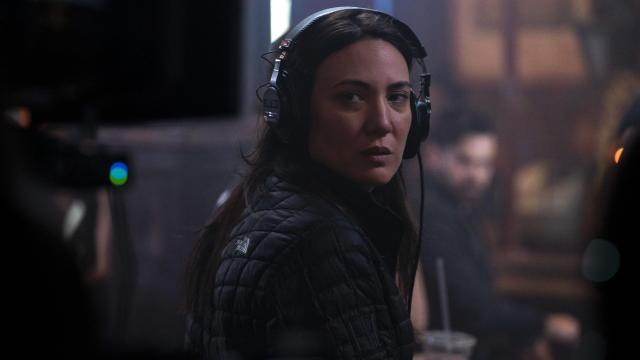First-time filmmakers usually start their careers with something simple. Something small. Something to prove they can tell a story, which can then be used as a calling card to do bigger and better things. Very few first-time filmmakers start off with a film that’s largely set on water, with scenes underwater, about a future where people can revisit their memories through holograms, all as the DNA of a sci-fi mystery romance. But most filmmakers aren’t Reminiscence writer-director Lisa Joy, who did exactly that.
Reminiscence stars Hugh Jackman as Nick Bannister, a former soldier who now helps people revisit and re-experience their memories. The film is set in a near-future where climate change has put much of the world underwater, forcing people to live on the tops of the buildings and get around in boats.
Visiting memories is one of the few ways people can remember the simple days, so business is good for Nick. That is, until a woman named Mae (Mission: Impossible’s Rebecca Ferguson) walks in. Nick falls for her and soon their relationship becomes the seed for a much deeper, darker, film noir tale centered around crime, drugs, sex, and so much more.
Joy wrote the screenplay for Reminiscence around the same time she was first co-writing and creating HBO’s Westworld, which she now executive produces along with her husband, Jonathan Nolan. (He’s brother of director Christopher Nolan, whose first film, Following, demonstrates the kind of growth we’re talking about — he didn’t start with Batman Begins.) The TV show is her biggest calling card and she freely admits she wouldn’t have been able to make a film of this scale without three seasons (and counting) of Westworld under her belt.
Gizmodo spoke with Joy about that, as well as the seemingly prohibitive decision to set Reminiscence on the water, the power of nostalgia (which plays a role in the film), world building, franchises, and, of course, Westworld. Plus, the video game Fallout, which she and her company Kilter Films are currently working on. [Note: The following has been slightly edited for clarity.]
Germain Lussier, Gizmodo: This is a hugely epic movie for a first-time feature director. Do you think you could have made this movie in the way you wanted without having worked on Westworld? And how do you think Westworld, if at all, changed the film’s vision in your head?
Lisa Joy: No, I don’t think I could have made this movie without Westworld. And I think that in terms of training, I needed Westworld to be able to figure out how to create the world I wanted to create on the budget and within the time constraints I had. It is an original film and my collaborators and Warner Bros. have been incredibly supportive, but when you’re not a giant franchise, you don’t have unlimited resources. Because of Westworld, I really learned and have been immersed in world-building and creating entire immersive worlds within a time limit and a budget. There’s been no better training for me than making that show. So do I think I could have done Reminiscence as a kind of indie without some of the world-building? A much smaller film? Maybe. But in terms of the scope that I wanted and the amount of action that I wanted and world-building, I think that the experience of Westworld was really, really helpful.
Gizmodo: Part of that scope is because there are so many ideas in the film. You’re exploring dreams, but it’s also set in a largely water-covered world which resulted in this huge war, plus it’s a romance and a mystery. I read that the whole thing started with the idea of memory exploration, but from there how did each idea kind of beget the next one and make the film even bigger?
Joy: It’s funny because I started in poetry and that is all about the emotion and a couple images. So I always tend to start with emotion and theme when I’m writing. But I think part of me is more into intellectual pursuits and that part of your brain. I’m always looking at innovations in science, current events, things like that. I used to work in high tech before becoming a writer and so that language too — the language of technology, the language of kind of emerging trends in the world — is something that I find really important. So it’s very hard for me to divorce an emotional idea from those forms of ideas.
It’s just the way that I tend to think and I do think that there are these strange and somewhat arbitrary lines and demarcations that habit has formed about art sometimes. Like an action movie can have this, but not this, kind of dialogue. And a romance can be mushy and sweet and a tear-jerker, but it can’t have a real action scene. [Things] like that. To me, that’s just frustrating. You deal with tropes in all manner of life. Every day, every one of us is confronting a gaze that the world has upon us and the more holistic internal people that we are. And so the same frustration I feel with that gaze on a personal level, I feel it on a creative level and just figured, eh, fuck it. [Laughs]
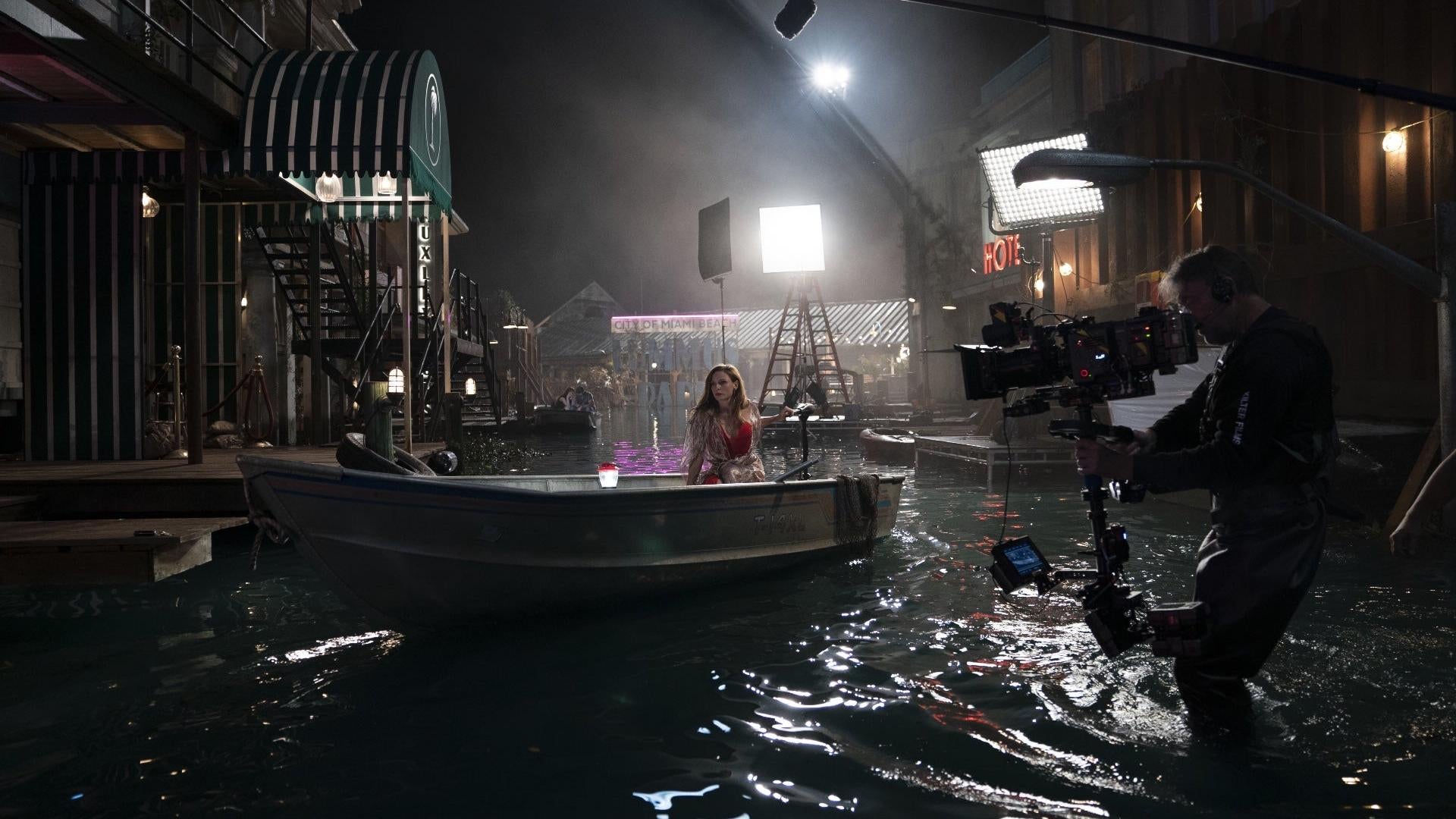
Gizmodo: There you go. I mean, you obviously felt that because making a movie on water isn’t easy. This isn’t quite Waterworld, but, you know, it couldn’t have been easy. So… was the water aspect always part of the idea and how much research went into making it realistic?
Joy: When I hired myself as director is when I decided to throw in the added challenge of water. [Laughs] Before that, it was not as watery because I didn’t want to dictate that from the page as a writer. I didn’t want to presume. But once I became the director of the film by, I guess, appointing myself the director — kind of handy how that worked out — I figured I could do exactly what I wanted to in terms of worldbuilding.
I knew that the technology for making water and VFX was a lot better than before. It used to be completely prohibitive and impossible, right? But I also know that if you don’t have practical elements, nothing looks real, no matter how good your VFX are. I’ve learned this from Westworld, I learned from watching other films. I needed to film the underwater fights practically otherwise the physics don’t hold true. You can’t account for that many variables. It would be cost-prohibitive and unlike, say, a Marvel film or a different kind of film — films I enjoy, by the way, very much — but films where you can suspend disbelief a little bit because you’re dealing with fantastical elements.
I wanted this to feel incredibly grounded, I wanted [Nick’s] emotional journey to be very real and very raw, and I wanted Miami to look as though [it being flooded] could really happen. And indeed, it is now happening. So in that way, I didn’t want the fight scene to take you out and say, “Well, now is when we’re in fake water.” So I did that practically and did the [dream] hologram practically — we did that in camera. That was all very important to me as a basis from which Bruce [Jones, visual effects supervisor] and my incredible VFX team could build out the world.
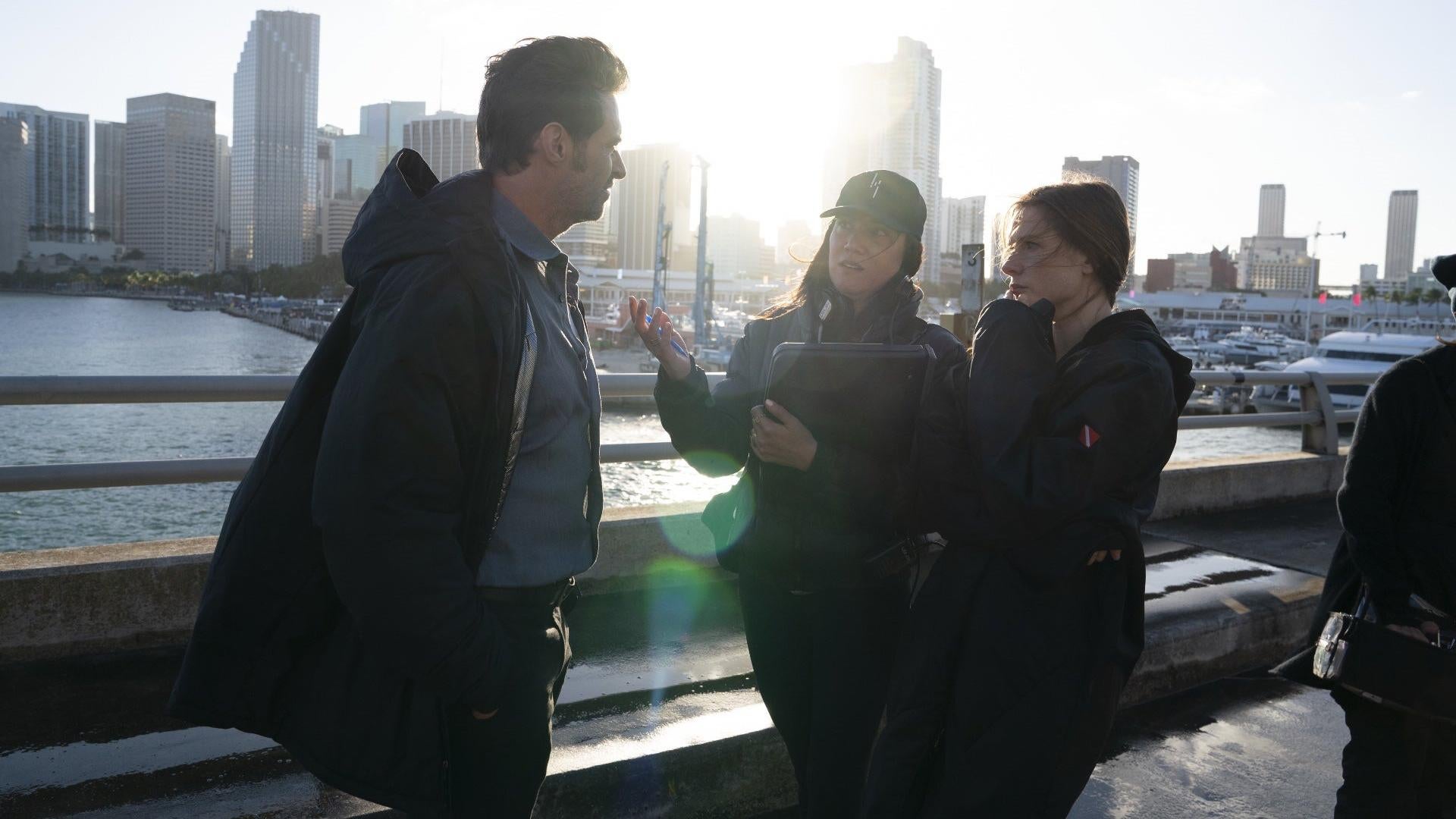
Gizmodo: I love in the movie how the characters talk about the power of nostalgia because it’s kind of meta. Nostalgia is what drives sequels and franchises, which are largely the reasons why movies like this don’t get made. So what are your feelings on the power of nostalgia in our world and its place in Hollywood?
Joy: I mean, look, you can tell a story with characters in a world that you’re nostalgic for a million different ways and it can evolve over time and be new again while also hitting something resonant with you, something generational. Batman will mean something different to our kids but it will still be Batman. I think there’s incredible beauty in that. There’s incredible room for reinterpretation and reinvention. So I am definitely not one to knock on franchises. But I will say that for myself, I tend to, as a creator, come from such an internal place that very rarely do my ideas naturally gravitate towards a character that I’ve already seen before. It just comes from somewhere different. So in order to tell those stories, it lends itself more to an original idea. And then when telling any story you don’t really want to leave a lot … There must be some sports analogy for this…
Gizmodo: Leave it all on the field.
Joy: Is that how they say it? Do you want to leave it all on the field?
Gizmodo: You do. You want to leave on the field.
Joy: You want to leave it all on the field.
Gizmodo: Yes. [Laughs]
Joy: OK, well, that was a disastrous segue into a sports analogy, which is why you never see them in my writing. OK, so I am leaving it all on the field. So I don’t think in terms of sequels in general, because of this sports analogy.
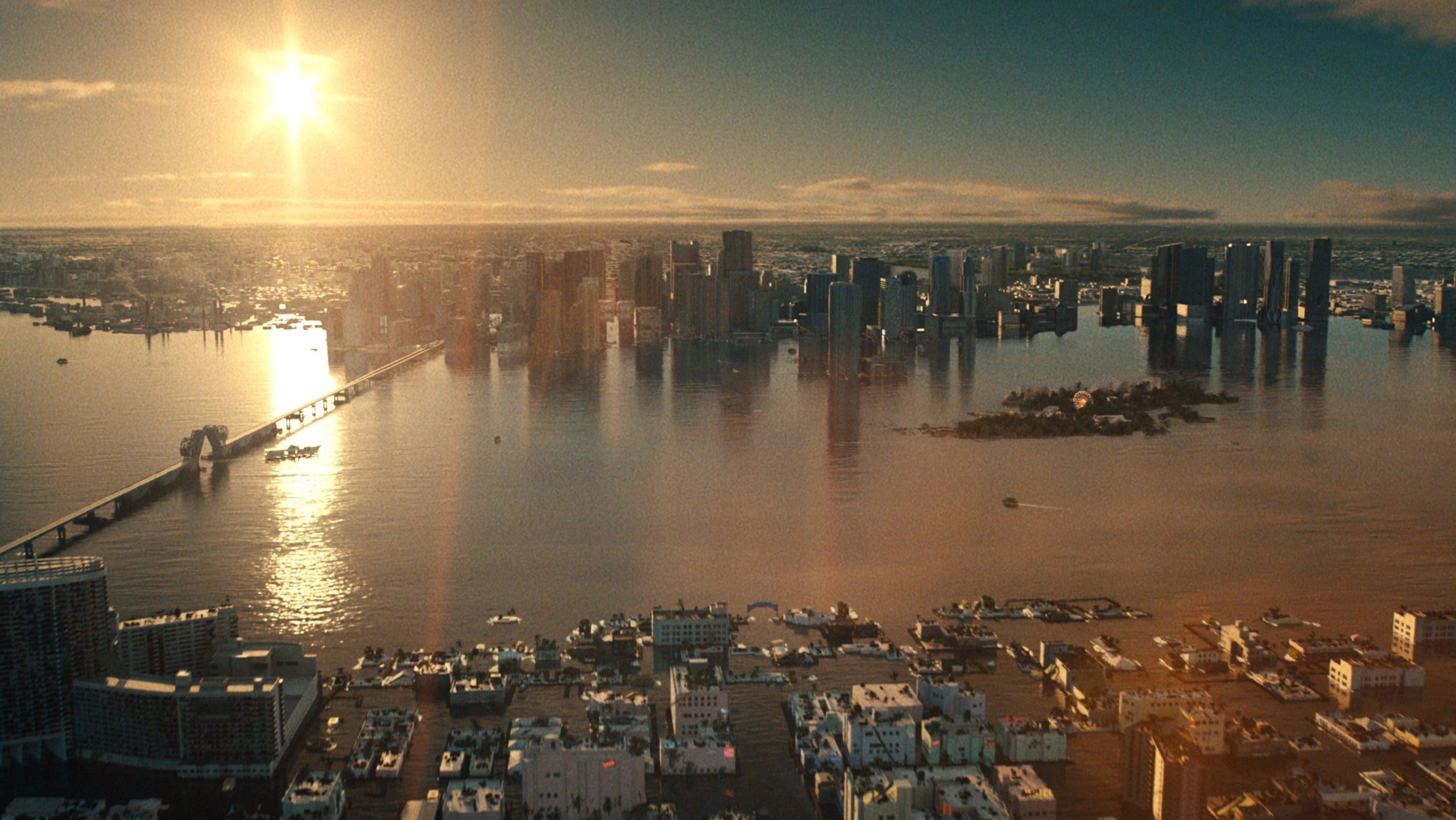
Gizmodo: Right, I understand. Well, that actually leads into something else. Like we said, this movie is filled with world-building, but most of it isn’t on screen. We know water took over Miami, we knew there was some kind of war over it, but we never see it. I feel like you could make three movies about how the world reacted to the actual flooding and what that meant for everyone. So my question is, was it hard to not do backstory scenes and leave so much of that to the imagination? Or was it easy because you had such a strong emotional core to focus on?
Joy: I wanted to be able to paint a realistic picture of what might happen to the world without being didactic about it. You know, I think one of the great gifts that writers of fiction have is you can write what really might be the truth, but without stamping your name everywhere on it. So people can come to their own conclusions a little bit. And I do think that there are things to observe in this world in the film that are not really contestable, that are really going to happen.
I do think that when I was writing about a flood in Miami, it was conjecture — and that was a few years ago. And in the New York Times a few months ago, they talked about building barriers to stop the tide from flowing into Miami. Those barriers look a hell of a lot like the barriers that Howard [Cummings, production designer] designed for my sets.
So for me, that’s not a political thing, it’s just what is and so I presented it as what is. I don’t want to get into a debate about it. The idea of the difficulties and strife that might arise from global climate change is something that also is not conjecture. It’s just something that we need to learn to start dealing with.
Gizmodo: Yeah, absolutely. You’re best known for Westworld, a big sci-fi idea story, and now your feature debut is similar in that it’s also got big ideas in a sci-fi story. Between the two, are you worried about being kind of pigeonholed into someone who only does big sci-fi idea movies?
Joy: It’ll be funny because that’s really counter-programming. No matter how much sci-fi I do, when I walk into a room, people tend to pitch me romantic comedy. I guess it’s counter-programming against what I look like I should be doing. So I don’t really worry about it. I just nerd out.
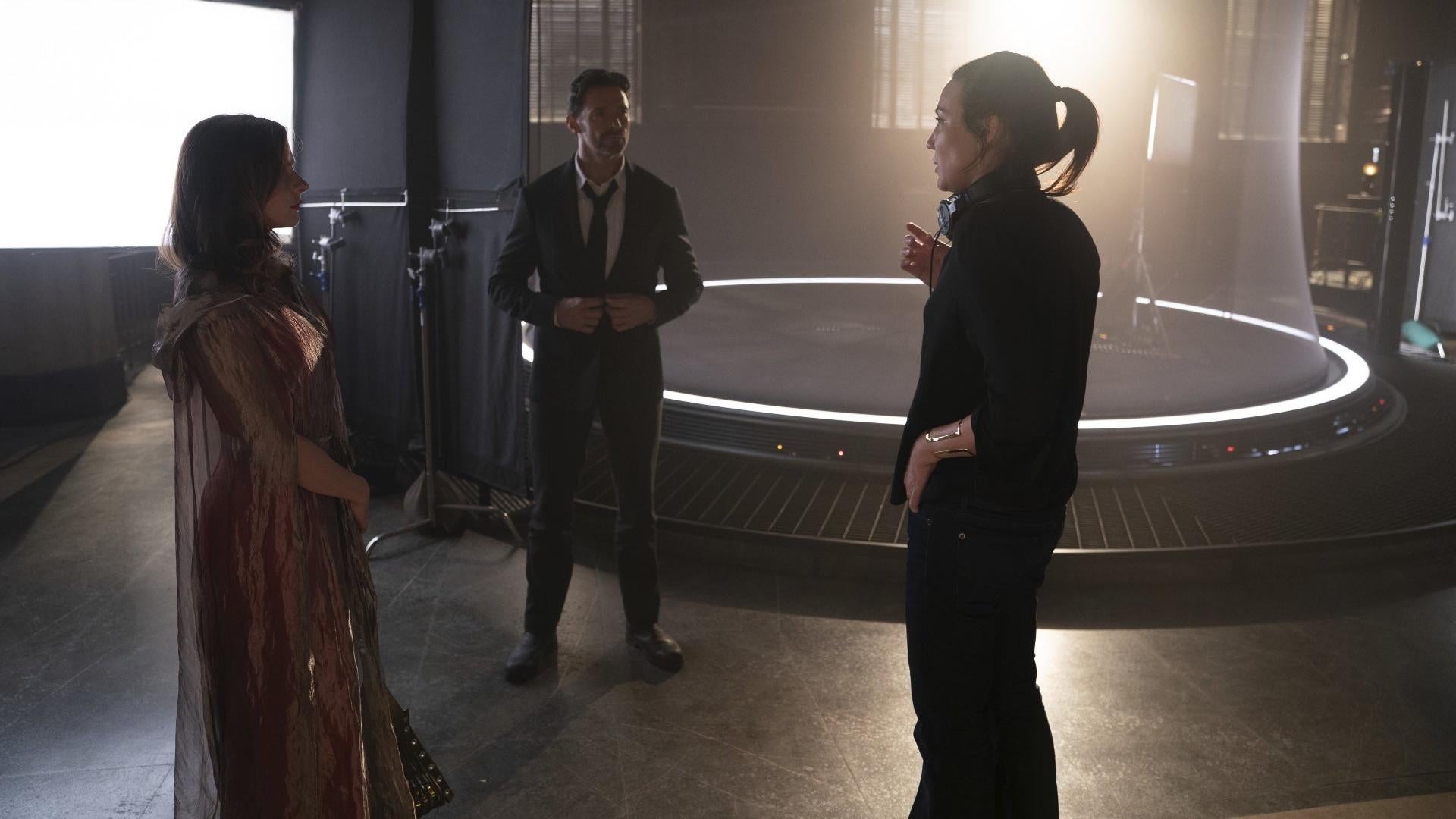
Gizmodo: Westworld season four is on the way at some point but, in between seasons, maybe even more so during covid, do you and the team look at how fans react to seasons or stories and let that influence you at all?
Joy: I don’t. Now, I can’t speak for everybody on my team, and I think it’s important to have people who will alert me on my team if I’ve done something wrong or I’m really out of pace with, not with what artistic preferences people have, but if I need to, like, wake up socially to something. Do you know what I mean? I really try to stay alive that way and to grow that way. But in terms of the specific creative direction of the show? I tend to… I can’t engage in that. I’m like super introverted, you know? People will be like, “How much has your life changed since Westworld came out?” And I was like, “Not at all. I nerd out at the office and then I go home and I nerd out over there and then I fall asleep and I repeat it. Why would anything change? Nothing has changed whatsoever.” But I have kids now.
Gizmodo: So maybe less nerding out.
Joy: Yeah, more cleaning throw up [Laughs].
Gizmodo: Do you have any kind of endgame in mind for Westworld or is the plan to just going to keep going?
Joy: Not keep going. I think we owe it to an audience to… oh, hey, we’re going to go for this metaphor again…“Leave it all on the field.”
Gizmodo: Yes. Nailed it.
Joy: And if you want to leave it on the field, you have to know the parameters of the field and what you’re leaving on the field. And we’ve known that since day one.
Gizmodo: OK, cool.
Joy: I really nailed that sports analogy.
Gizmodo: You got it. I think the next movie is a sports movie, maybe like Real Steel 2. Now, moving from there, as a video game fan, I’m very excited that you and your team are tackling the Fallout franchise. What drew you to that huge task and that huge world and what’s the latest update?
Joy: The world is so cinematic and so operatic in its themes and its characters and its arcs. I mean, how could one say no to that? So that’s why and we’re cracking away on it. We have some incredible writers and it’s just something I’m incredibly, incredibly excited about, although I still have trouble playing video games myself. I very much I’m a good watcher of video games. I’m a backseat driver in video games.
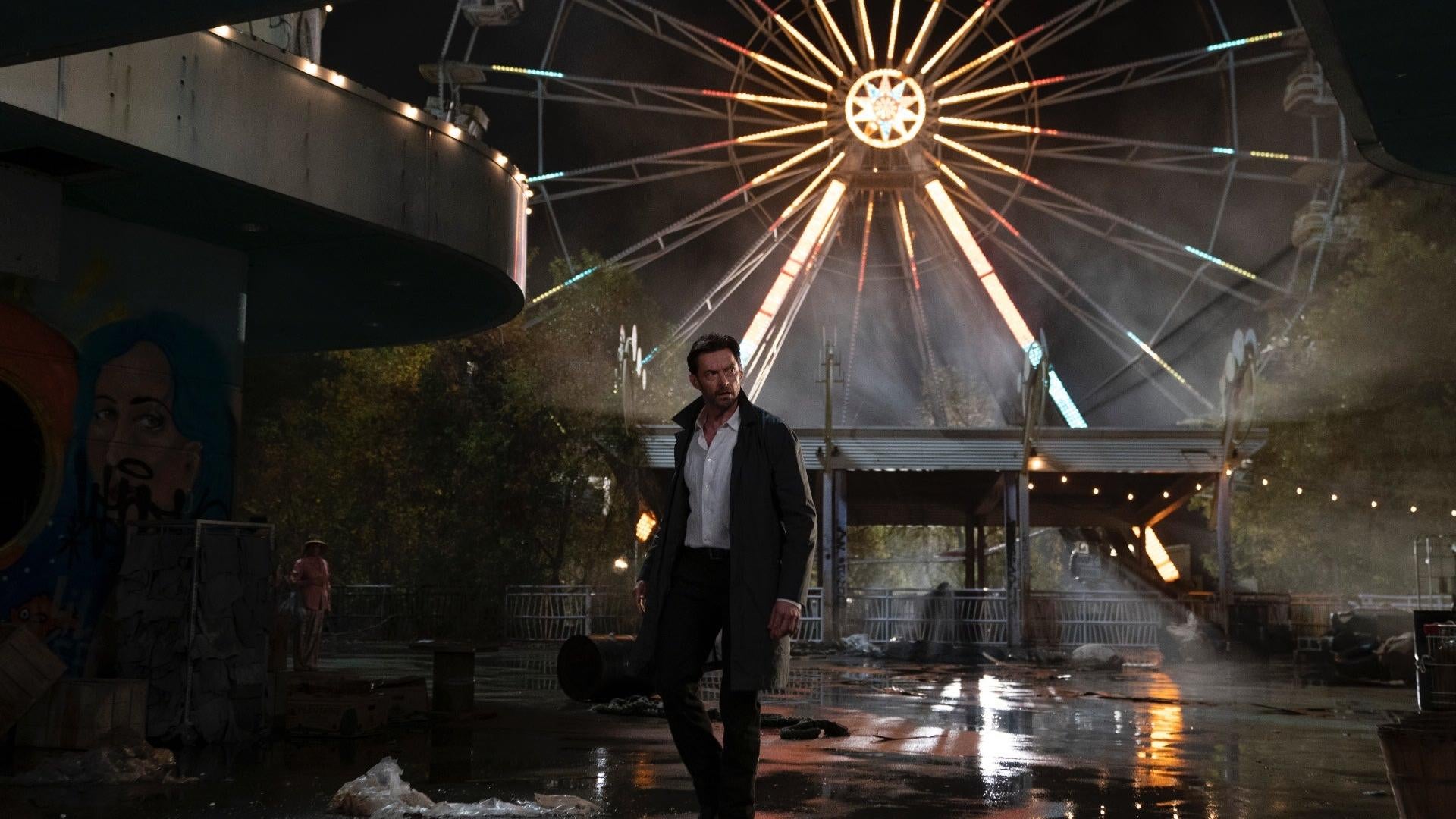
Gizmodo: Last thing, obviously people can watch Reminiscence in theatres if they feel safe or on HBO Max. But that decision from Warner Bros. has been fairly controversial in recent months. Tell me about how you feel about people experiencing your movie in either way.
Joy: I want people to be safe and I want them to feel comfortable. No one is going to experience a movie well if they’re scared for their lives [laughs]. So I would like them to enjoy watching the movie. So, look, I think we’re all adjusting to these difficult times and that my partners at Warner Bros. have done the best that they can to make sure we can still get content out there while also ensuring that it has a viable theatrical experience for when and if it is safe.
I have watched this movie several times now, as you can imagine, and my favourite viewing that I had of it — and one that was actually transformative for me because I’ve been quite sick of watching the movie so many times — I saw it on IMAX quite recently. And it was as though I was able to experience it anew. Really. The visual effects, everything really hit me. So, of course, it was designed for theatrical. Even the shot composition, we shot anamorphic.
From my early designs, we compress the screen in certain ways to show a certain throw [of light] for the underwater scenes. But, you know, if it’s safe, that’s a great way to watch it and if you don’t feel safe, then I’d be thrilled if you watch it at home. Mostly I just want people to, hopefully, connect with it. Whether that occurs in a spaceship, in a submarine, on a couch, or in a movie theatre, I feel quite fortunate.
Reminiscence, which co-stars Thandiwe Newton, Cliff Curtis, and Brett Cullen, opens in select theatres and on HBO Max in the U.S. on August 20.
